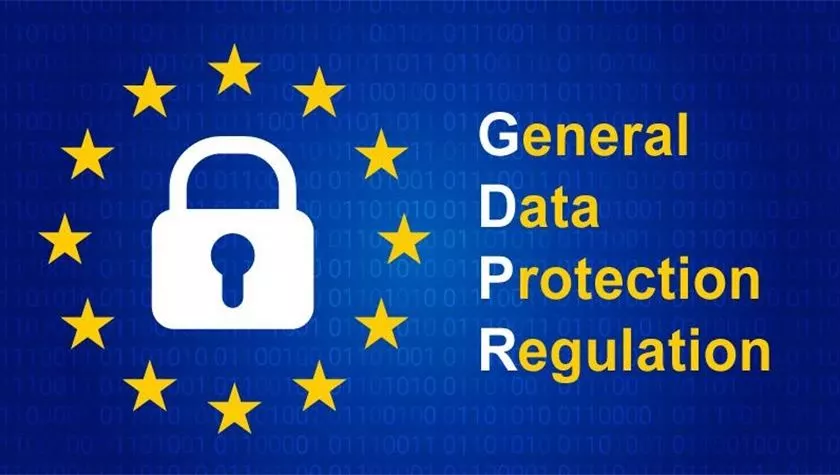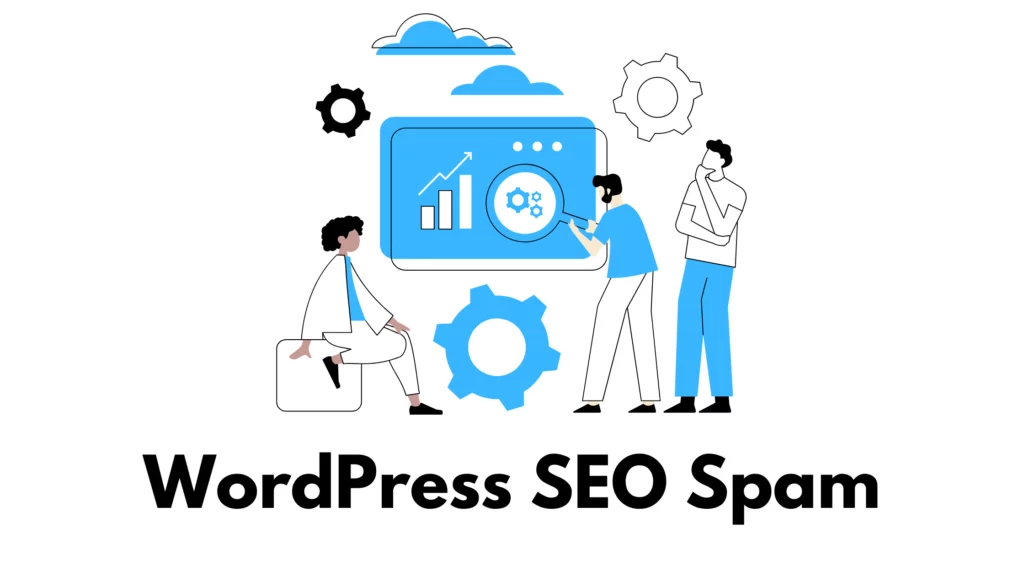In the digital age, maintaining a secure online presence is of paramount importance. As businesses and individuals increasingly rely on websites to connect with their audience, the significance of website security cannot be overstated. In this blog, we will delve into the intricate relationship between WordPress website security and SEO rankings, highlighting the role security plays in maintaining a positive user experience, preventing SEO spam, and ultimately boosting your SEO rankings. Additionally, we will explore alarming statistics related to SEO spam and provide actionable steps to safeguard your WordPress website against hacks.
The Intersection of Security and SEO Ranking
Search engine optimization (SEO) and website security are closely interconnected. Google and other search engines prioritize two factors primarily: user experience and safety, which is why they consider security as a SEO ranking factor. When a website is considered secure, visitors are less likely to encounter malware, phishing attacks, or other malicious activities. Consequently, search engines tend to reward secure websites by ranking them higher in search results. With the introduction of GDPR and HIPAA, the spotlight has once again turned toward cybersecurity and data privacy concerns.
The term “GDPR” stands for the General Data Protection Regulation. This updated web security regulation replaces the previous “Data Protection” law and introduces a fresh approach to handling personal data among digital entities.

GDPR serves to enhance and consolidate data protection measures for individuals within the European Union. It introduces novel restrictions, guidelines, and enforcements, establishing tangible consequences and ultimately establishing a systematic and synchronized regulatory structure applicable to all nations.
Impact of Security Breaches on SEO

Security breaches on your website can have a detrimental effect on your SEO rankings. In cases where a website is compromised, it may be injected with malicious content, leading to what is known as SEO spam. SEO spam includes various black-hat techniques, such as keyword stuffing, hidden text, and cloaking. These tactics deceive search engines into thinking a website is more relevant than it actually is, leading to artificially inflated rankings.
A potential reason for a decline in rankings could be consistent attacks from malicious hackers targeting the website. These attacks can obstruct Google Bot’s access to the website, even if the site itself hasn’t been compromised. Such attacks can not only hamper the website’s performance by overwhelming the web server with traffic but also prevent web pages from being indexed and available on Google.
Even when web pages are not genuinely missing, Google Search Console might still display 404 errors. This issue arises when web servers send messages to Google’s web crawlers indicating the absence of certain web pages. This situation can be exacerbated by website scrapers and hackers who launch attacks on the website.
This example underscores the direct correlation between web security and SEO outcomes. To counteract these potential threats, a concerted effort should be made to enhance security measures. Additionally, the synergy between security and SEO can be bolstered by granting appropriate access to Google’s web crawlers for web pages, thereby mitigating the adverse effects of attacks and ensuring a more favorable SEO performance.
Alarming Statistics on SEO Spam
Recent statistics underscore the seriousness of SEO spam. According to a study by Sucuri, a leading website security company, 52.6% of websites affected by a security incident had some form of SEO spam injected into their pages. This indicates a significant correlation between website security breaches and compromised SEO integrity.
Is your website’s SEO ranking at risk?
Google recently announced that HTTPS is now a positive ranking factor in its search engine results. John Mueller, a Google SEO spokesperson, explained how HTTPS has been integrated into Google’s algorithm. The algorithm evaluates pages in real-time, allowing individual pages to benefit from the SEO boost, though it’s recommended to switch the entire site to SSL.
Gary Illyes, a Trends Analyst at Google, confirmed the gradual implementation of SEO advantages and even mentioned the possibility of indicating secure sites in search results with a colored badge. This addition to the algorithm, introduced in 2014, aimed to provide webmasters time to transition to SSL/TLS for data encryption. While HTTPS’s impact on rankings has been moderate, there’s still a potential risk to your WordPress site’s SEO rankings due to security concerns.
What motivates hackers to target our websites?

Hackers target websites for a variety of reasons, ranging from financial gain to ideological motivations. Understanding their motives can help website owners take appropriate measures to protect their sites. Here are some common reasons why hackers go after websites:
- Financial Gain: Many hackers are driven by financial incentives, attempting to steal sensitive financial info, credit cards, or personal data for fraud, black market sales, or ransom demands from site owners. Hackers also inject spam and backlinks into websites to manipulate search rankings, earning money by selling links or promoting their products/services.
- Competitive edge: Hackers use DDoS attacks to overwhelm servers, causing downtime for revenge, extortion, or competitive edge.
- Data Theft: Hackers target websites for valuable data like user accounts, emails, passwords, and personal info, using it for identity theft, phishing, or compromising other accounts.
- Ransomware: Hackers encrypt site data, demanding ransom for decryption. Failure to pay leads to data inaccessibility and business disruption.
- Botnets and Malware: Hackers recruit compromised sites into botnets for cybercrime-like large-scale attacks.
- Ideological Motivations: Hacktivists target sites to promote causes, deface sites, leak data, or disrupt operations.
- Vandalism: Hackers deface sites for recognition, skill showcasing, or chaos, harming site reputation and user trust.
- Intellectual Property Theft: Hackers steal IP, trade secrets, or software to sell or use for personal gain.
- Defacement: Hackers may deface your website by altering its appearance and content. Such attacks can harm your brand’s reputation and lead to SEO penalties due to a sudden drop in user engagement.
WordPress Hacks Impacting Your Website SEO Rankings

WordPress websites, while highly versatile and user-friendly, can also be vulnerable to a range of hacks that can severely impact your website’s SEO rankings. These hacks have the potential to undermine your website’s reputation, user experience, and SEO rankings. Here are some common WordPress hacks that can damage your website’s SEO:
- Pharma Hacks: Pharma hacks involve injecting spammy and irrelevant content related to pharmaceutical products into your website’s pages. This can conveniently lead to a rapid drop in your SEO rankings as search engines penalize websites hosting such malicious content.
- SEO Spam Injection: Hackers may insert hidden text or links into your website’s content aimed at manipulating search engine algorithms. This black-hat technique can lead to over-optimization penalties and result in lowered search engine rankings.
- Backdoor Access: Backdoors are hidden access points that hackers create to gain unauthorized access to your website. These backdoors can be used to modify your content, including inserting malicious links or keywords that can negatively impact your SEO.
- Malware Infection: Malware can infect your website and compromise user security. Search engines quickly identify malware-infected websites and label them as unsafe, which can lead to immediate drops in search rankings.
- Content Cloaking: Content cloaking involves displaying different content to search engine crawlers and human visitors. This deceptive technique can lead to search engine penalties, causing your website’s rankings to plummet.
- URL Redirects: Hackers might implement malicious redirects, sending users to unrelated or harmful websites. These redirects can confuse search engines and trigger penalties that harm your SEO.
- Keyword Stuffing: Similar to SEO spam injection, keyword stuffing involves overloading your content with irrelevant keywords to manipulate SEO rankings. This hack can lead to poor user experience and SEO penalties.
- DDoS Attacks: DDoS, abbreviated as Distributed Denial of Service attacks, overload your website’s server, causing it to crash. Frequent DDoS attacks can result in downtime, negatively affecting user experience and SEO rankings.
- Brute Force Attacks: These attacks happen when hackers use automated tools to guess passwords and gain unauthorized access to your website. If successful, they can inject malicious content or even delete your website’s content, leading to SEO ranking-related issues.
- SQL Injection: SQL injection attacks manipulate your website’s database, potentially altering the content or deleting valuable information. This can disrupt your website’s structure and damage its SEO.
- Negative SEO Attacks: Competitors or malicious entities can use negative SEO techniques to damage your website’s SEO rankings, such as building spammy backlinks or generating low-quality content.
Preventing these WordPress hacks is crucial to maintaining your website’s SEO health. By proactively safeguarding your website, you can mitigate the risk of these hacks and protect your SEO rankings.
Preventing Hacks and Ensuring Security for SEO Rankings
- Regular Software Updates
Regularly updating your WordPress core, themes, and plugins is a fundamental security practice. Outdated software can have vulnerabilities that hackers exploit. By staying up to date, you can guarantee that your website is fortified with the latest security patches.
- Strong Passwords
The importance of strong, unique passwords cannot be overstated. Ensure that all accounts associated with your WordPress website use complex passwords. Avoid common words, and refrain from using the same password across multiple platforms.
- Use Reputable Themes and Plugins
Stick to well-known and reputable sources for downloading themes and plugins. Beware of free or pirated versions, as they might contain hidden malicious code.
- Install Security Plugins
Employing security plugins like Wordfence or Sucuri Security can provide an extra layer of defense. These tools offer features such as firewall protection, malware scanning, and real-time monitoring of login attempts.
- Backup Your Website
Regularly backup your website’s data and files. Having clean backups readily available is crucial in the event of a security breach, letting you restore your website swiftly and minimize downtime.
- Implement SSL Encryption
Secure Sockets Layer (SSL) certificates encrypt data transmitted between a user’s browser and your website’s server. Beyond enhancing security, SSL is also a SEO ranking factor, according to Google and contributes to user trust.
- Limit Login Attempts
Implement mechanisms to restrict the number of login attempts, thwarting brute force attacks. Plugins like Login LockDown can help you achieve this.
- User Permissions
Assign appropriate user roles and permissions within your WordPress dashboard. Avoid granting unnecessary access to prevent unauthorized changes that could compromise your website’s security.
- .htaccess Security
Utilize the .htaccess file to bolster security by controlling access to sensitive files and directories. This file can be configured to prevent unauthorized users from exploiting vulnerabilities.
Conclusion
Securing your WordPress website transcends merely protecting your digital assets; it directly influences your SEO rankings and user experience. The interdependence between security and SEO ranking underscores the urgency of maintaining a secure online environment. By proactively adopting the measures mentioned above, you can fortify your WordPress website against potential hacks. This not only preserves your online reputation but also amplifies your SEO endeavors, leading to enhanced visibility, organic traffic, and sustained growth.
FAQs
What drives hackers to exploit vulnerabilities opportunistically?
Various hackers use automated tools to scan the internet for vulnerabilities. Websites with weak security become easy targets for opportunistic attacks, where hackers exploit these vulnerabilities just because they can.
How do hackers financially benefit from hacking websites?
Hackers can steal sensitive information like credit cards, personal data, or intellectual property to commit fraud, sell on the black market, or ransom it back to the site owner.
Can you explain hacktivism and its impact on websites?
Hacktivists target websites to advance specific causes or protest against organizations. They might deface sites, leak sensitive information, or disrupt online operations to raise awareness.
What are some common signs of a website being hacked?
Unexpected changes in content, slow performance, frequent downtime, and unauthorized access are some signs that a website may have been compromised.
What should website owners do if their site is hacked?
Website owners should isolate the affected site, remove malicious code, change passwords, and restore clean backups. They should also identify and fix vulnerabilities to prevent future attacks.



